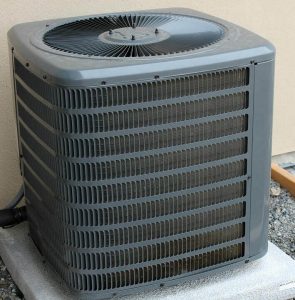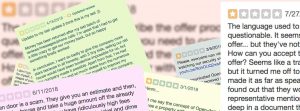 You probably recognize R22 by its common name: Freon. This refrigerant has been used in households for over 60 years to allow our air conditioners to cool our homes. During the 1970s, scientists discovered a link between hydro-chlorofluorocarbons (HCFCs) and depletion of the Earth’s ozone layer. With this link began the phase out of R22, an HCFC product, in 2010. R22 is an HCFC refrigerant that use gases to produce cool air by compressing warm air sources into liquid through HVAC coils. Freon has been an industry standard in refrigerants since the 1950s due to its efficiency.
You probably recognize R22 by its common name: Freon. This refrigerant has been used in households for over 60 years to allow our air conditioners to cool our homes. During the 1970s, scientists discovered a link between hydro-chlorofluorocarbons (HCFCs) and depletion of the Earth’s ozone layer. With this link began the phase out of R22, an HCFC product, in 2010. R22 is an HCFC refrigerant that use gases to produce cool air by compressing warm air sources into liquid through HVAC coils. Freon has been an industry standard in refrigerants since the 1950s due to its efficiency.
How will this affect homeowners?
Although production of R22 will cease, there is expected to be plenty available and approved for use through December 31, 2029. Between 2020 and 2029, servicing systems with R22 will rely solely on recycled or stockpiled quantities. Homeowners are not required to stop using R22 air conditioners, nor are they required to replace existing equipment. However, homeowners should keep in mind that as supplies of R22 becomes limited over time, they may experience an increase in prices.
Phaseout dates to know:
Under the Clean Air Act of 1990, the U.S. began to outline a phase out for the use of R22 that would unfold slowly over the course of 20 years.
January 1, 2020 – there will be a ban on production and import of R22. Service of product will rely on stockpile.
January 1, 2030 – there will be a ban on remaining stockpile and import of all HCFCs.
What can homeowners do now?
The phase-out of R22 has been lengthy to allow homeowners to replace their air conditioner as they naturally age, and replace them with new energy-efficient equipment that uses EPA-approved
refrigerants, such as R410A which is a non-ozone-depleting refrigerant alternative refrigerant. It is flourine-based and contains no chlorine. R410A is also noncorrosive, nonflammable, and neutral to the environment. It is manufactured and sold under many names such as, PURON®, GENTRON AZ-20®, and SUVA®.
Purchasing a home warranty plan for the property is likely the most cost effective way to deal with the R22 Freon phase-out and conversion to R410a that we are facing. It can save you thousands when entire systems need to be replaced.
 I often have past clients who purchased their home in Phoenix with an FHA loan ask me about the current estimated value of their home because they are considering refinancing an FHA loan into a conventional loan. Why should you also look into this? To save money every month!
I often have past clients who purchased their home in Phoenix with an FHA loan ask me about the current estimated value of their home because they are considering refinancing an FHA loan into a conventional loan. Why should you also look into this? To save money every month! Estimating the value of a Phoenix home is a science more than it is an art. Factors like average days on market, availability of other competing homes for sale and seasonal demand fluctuations should all be taken into consideration – but more so when determining the pricing strategy for your home, not calculating its market value.
Estimating the value of a Phoenix home is a science more than it is an art. Factors like average days on market, availability of other competing homes for sale and seasonal demand fluctuations should all be taken into consideration – but more so when determining the pricing strategy for your home, not calculating its market value. Looking for
Looking for  Looking to buy your first home in Phoenix? There are three loan types and one down payment assistance program that may be ideal for you, depending on your situation:
Looking to buy your first home in Phoenix? There are three loan types and one down payment assistance program that may be ideal for you, depending on your situation: